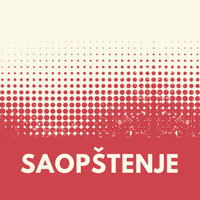First Instance Judgment in the Jajce Case – Unacceptably Low Sentences for Murder of Civilians
 On 16 December 2024, the War Crimes Department of the Higher Court in Belgrade delivered a judgment finding Jovo Jandrić and Slobodan Pekez guilty of the murder of 23 civilians, including 4 minors and 10 women, residents of the villages Čerkazovići and Ljoljići (Jajce Municipality), which constitutes a war crime against the civilian population. Jovo Jandrić was sentenced to 13 years imprisonment, while Slobodan Pekez received a 10-year prison sentence.
On 16 December 2024, the War Crimes Department of the Higher Court in Belgrade delivered a judgment finding Jovo Jandrić and Slobodan Pekez guilty of the murder of 23 civilians, including 4 minors and 10 women, residents of the villages Čerkazovići and Ljoljići (Jajce Municipality), which constitutes a war crime against the civilian population. Jovo Jandrić was sentenced to 13 years imprisonment, while Slobodan Pekez received a 10-year prison sentence.
The judgment established that, late on the evening of 10 September 1992, a group of approximately 10 armed members of the military and police, including Slobodan Pekez, Mirko (Špiro) Pekez, Mirko (Mile) Pekez, Simo Savić, Milorad (Đura) Savić, Zoran Marić, Ilija Pekez, Milorad (Ljupko) Savić, and Blagoje Jovetić, organized and led by Jovo Jandrić, unlawfully detained and forcibly removed Bosniak civilians from their homes in the villages of Čerkazovići and Ljoljići, mostly women, children, and elderly people. Under a threat of death, they confiscated all valuables from the civilians, physically assaulting them with rifles and kicking them, and then transported them to the location known as “Tisovac”. There, the civilians were ordered to line up next to a ravine, after which the perpetrators opened fire and killed 23 civilians.
The court determined that the testimonies of five survivors, including Mustafa Bajramović and Fahrija Mutić before the Higher Court in Belgrade, were clear and precise, stating that they “saw, heard, and experienced the actions of Jovo Jandrić,” leaving no doubt about his criminal responsibility. Evidence of Slobodan Pekez’s criminal responsibility was provided by Jandrić himself, who confirmed that Pekez was part of the armed group that executed the civilians.
The Humanitarian Law Center considers the sentences low given the established facts and inconsistent with the court’s previous practice.
During the reasoning of the judgment, Judge Bojan Mišić, presiding over the panel, emphasized that the most significant factor in determining the sentences was “the passage of time since the crime occurred,” as well as the age of the defendants, noting that Jandrić is 70 years old and Pekez is 67. The court also considered the scale of the crime and the sentences imposed for the same crime by the Court of Bosnia and Herzegovina, which the judge stated are “within these ranges.”
This is the first time that the court panel cited the practice of the Court of Bosnia and Herzegovina in determining sentences, yet the sentences deviated from its own prior practice. For instance, in the same court, members of the Scorpions paramilitary group were sentenced to 20 and 15 years in prison for the execution of 14 civilians in Podujevo (Kosovo). Slađan Čukarić and Radojko Repanović were sentenced to 20 years, Miroslav Petković to 15 years, and Milorad Nišavić to 13 years for the murder of 48 civilians in Suva Reka/Suharekë (Kosovo). In both cases, many of the victims were women and children.
Furthermore, in cases before the Court of Bosnia and Herzegovina for the murder of residents of Čerkazovići and Ljoljići, Mirko (Mile) Pekez was sentenced to 20 years in prison, Milorad (Ljupko) Savić to 15 years, Mirko (Špiro) Pekez to 10 years, and Zoran Marić, who admitted the crime, to 15 years. These sentences are higher than those imposed by the court in Belgrade. All those convicted were identified as members of the armed group organized and led by Jovo Jandrić.
Although the passage of time is now routinely taken as a mitigating factor, the HLC emphasizes that this is inadequate in war crimes cases due to the nature and gravity of these offenses and the fact that such crimes are not subject to a statute of limitations. Given that the prosecution of these crimes is often delayed or avoided, the passage of time cannot serve as a mitigating factor.
Additionally, the age of the defendants should not influence the severity of the sentence, especially since the defendants were 38 and 35 years old, respectively, at the time of the crime – mature adults fully aware of their actions. Jovo Jandrić, a resident of Čerkazovići and a neighbor of the victims, played a leading role in the group. It is also important to consider that the youngest victim was only 9 years old and the oldest was 74.
Considering that the presiding judge stated during sentencing that a total of 30 civilians were “left at the mercy of the defendants” during the attack—including the 23 killed, two who escaped, and five survivors, most of whom were seriously injured, and that the victims were mostly women, children, and the elderly—it remains unclear how the court deemed the imposed sentences adequate.
Regarding the civil claims, the presiding judge directed the injured parties to pursue their claims in civil proceedings, stating that awarding compensation is typically not done in criminal proceedings and citing in support of this a “domestic court tradition”. The judge also noted that the Court of Bosnia and Herzegovina also did not address compensation in the trials for the same crime. However, given that Serbia’s Criminal Procedure Code mandates that courts address compensation claims in criminal proceedings and that the Supreme Court of Cassation issued Guidelines for adjudicating such claims five years ago, the claim of “tradition” is unfounded. Referring injured parties to civil proceedings must be an exception, not the rule.
Victims:
| Bajramović (Šemso) Sabahudin 1979
Bajramović (Mustafa) Irhad 1971 Bajramović (Mujo) Latif 1959 Bajramović (Alija) Mustafa 1946 Bajramović (Latif) Ekrema 1939 Bajramović (Ibro) Mujo 1927 Balešić (Ibro) Mustafa 1950 Balešić (Musla) Fahra 1928 Balešić (Avdo) Faza 1918 Karahodžić (Omer) Senad 1968 Karadhodžić (Alija) Ibrahim 1933 Karahodžić (Latif) Zarifa 1928 |
Malkoč (Ibro) Šećo 1933 Mutić (Huso) Fatima 1963 Mutić (Osman) Nedžib 1936 Mutić (Šerif) Ramiza 1936 Mutić (Hadžo) Derviša 1933 Zobić (Nurija) Adis 1983 Zobić (Subhudin) Adnan 1979 Zobić (Nurija) Asmer 1977 Zobić (Tahir) Fikreta 1957 Zobić (Arif) Fikreta 1956 Zobić (Avdo) Đula 1924
|







